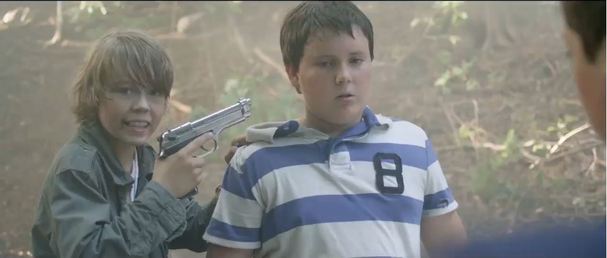 A group of young teenagers spend their summer playing war games in the woods. Armed with sticks, balloons, and their imagination, they essentially partake in a more hardcore version of capture the flag. As the game intensifies, the game becomes far more insidious, as the lines between make-believe and reality begin to blur. Jason Lapeyre & Robert Wilson's I Declare War is a conceptually impressive film that unfortunately never quite manages to deliver the promise of its concept. Early on, I Declare War does a great job at capturing youthful exuberance and imagination, seemlessly transitioning from reality to fantasy as these children play war games. As the games intensify, the exuberance is stripped away from these children as they quest for victory, with jealously and pride leading to this disintegration of innocence. I Declare War is not a bad film it just doesn't amount to all that much, perfectly complacent in delivering a film about the destructive powers of pride and jealousy. Personally, I was hoping the film would have larger political satire ambitions but it never achieves that level, though I feel that the intentions were there. The other problem with I Declare War is the acting is pretty awful at times, particularly the overacted Skinner, who is the character who pushes the child's game to insidious extremes. The directors are liable for these performances, unable to recognize these shortcomings and direct their actors into more subtle performances. I Declare War is a interesting concept centered around humanity's dark side and while it's far from bad, it could have been much more intelligent political satire.
0 Comments
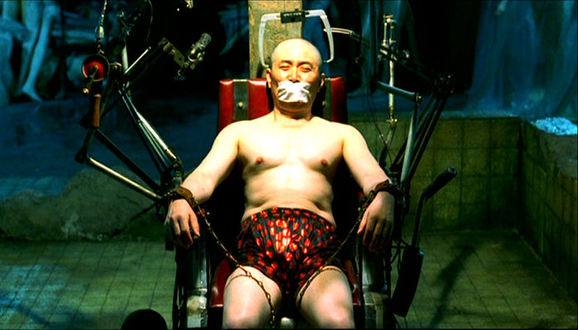 Lee Byeong-Gu is a sad, sensitive young man whose grown increasingly delusional since losing his mother several years ago. Obsessed with conspiracy theories and science fiction, Byeong-Gu is convinced that aliens are living among us, planning to destroy humanity during the next lunar eclipse. In order to stop this from happening, Byeong-Gu must find the one alien who possesses the Royal Genetic Code, who just so happens to be his old boss, CEO Kang Man-Shik. Together with his circus performer girlfriend, Byeong-Gu kidnaps Kap, intent on torturing him until he reveals his true identity and helps stop the invasion. Joon-Hwan Jang's Save the Green Planet! is an inventive, unique piece of filmmaking that is incredibly unpredictable though always cohesive. This film defies genre, being a mashup of every genre category in existence with direct references to film's like Kubrick's 2001 A Space Odyssey. A roller-coaster ride of emotion, Save the Green Planet manages to be demented yet humane and contemplative yet silly, in creating a truly memorable experience. Very stylish and always entertaining, Save the Green Planet's greatest attribute of all is how it handles Byeong, a deeply disturbed individual whose loss of his mother has driven him to madness. Much of the film itself is told through his perspective, with Joon-Hwang Jang creating a sympathetic character who the audience cares about, even being able to look past some of the monstrosities he commits in front of their very eyes. It's this story of a young, broken man that makes Save the Green Planet! so impressive, especially considering how much escapism the film offers as a whole. 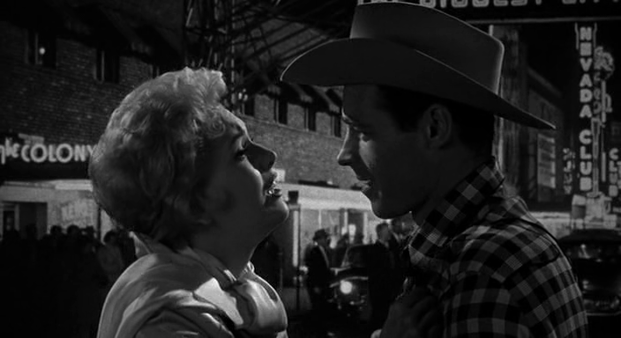 On their way back to the University, Four college buddies stop off in Reno for a night of drinks and gambling. While there, they witness an attempted robbery, which leads to a cop saying robbing the casino "cannot be done". Intent on proving the police wrong, the brain of the group devises a fail-safe plan to commit the robbery, convincing the other men to join him in what he describes as a college hoax, with full intent to return the money after the heist. Brick, a member of the group whose in major debt, suffering from PTSD due to the Korean War, sends things spiraling out of control as he fully intends to rob the casino and not return a dime. Phil Karlson's 5 Against The House is a modestly enjoyable heist film that is elevated by Phil Karlson's direction. The basic plot of 5 Against The House is fun, with each of the four college buddies bringing a unique personality to the film. They each play off each other well and when the heist commences the time the audience spent with them earlier only helps to heighten the tension. The actual heist itself falls under the category of unlikely, but Karlson's acute sense of direction gives everything weight. While the plot of the film centers around a heist, thematically the film is about the struggle of returning soldiers who are unable to seek the help they desperately need. Brick is a likable character who has had trouble finding his place after the war and the way the film unravels is a nice testament to a soldier's treatment after conflict. 5 Against the House is far from upper-echelon when it comes to Karlson's canon but what it says about a soldier's struggle and need of help even after the war rings very true and important to this day.  Jan-Willem Breure's Are All Men Pedophiles is a controversial and fascinating examination of pedophilia hysteria that exists in our current society, exploring the an anthropological origins and how our current socieities understanding and definition is severely misinformed. The film paints this hysteria as basically a Witch-Hunt capturing the double-standards of our society and the political and social consequences this misinformed hysteria will have. Are All Men Pedophiles is full of intriguing arguments about how men have become almost victims of modern sexism, capturing the double-standards that exist in society, particularly in the fashion industry which the film argues is a major factor in the over-sexualization of teenage woman. This is a film that has some powerful and convincing arguments and others that are a step above semantics or just underwhelming. The film's central and most convincing argument centers around all men being hebephiles, meaning they are attracted to teenagers, arguing that our society needs to make a clear-cut distinction between this anthropological attraction and true pedophilia. The film paints a picture of a reactionary society, showing absurd laws like airlines banning men from sitting next to children or book stores banning men from the children's section. From a filmmaking standpoint. Are All Men Pedophiles? is a rather by-the-numbers endeavor, using a talking heads approach that features neurologists, historians, scientists, etc. to create an encompassing look at pedophilia in modern society. 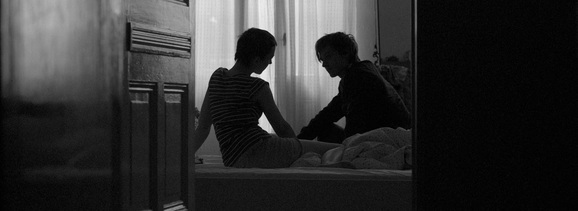 Jan Ole Gerster's directorial debut, A Coffee in Berlin, presents a day in the life of Niko, a twenty-something aimless man who recently dropped out of college. A Coffee in Berlin would be a nice bedside companion to Noah Baumbach's Frances Ha, though it feels far more like a series of vignettes where Niko bounces around meeting different people. These characters range from a very funny encounter with a psychiatrist, who Niko is ordered to visit, to a dramatic scene where Niko meets a grandmother who personifies loneliness. A Coffee in Berlin has a very whimsical spirit running through its core, with laughs of plenty, but the directors more dramatic intentions are very clear. Niko is a seriously flawed character who is perhaps a little too mopey, but the way Gerster's script slowly reveals his soul and past with absolutely no exposition is always impressive. The grandmother sequence is very important example of this in the film because Niko shows true empathy for this woman, something we hadn't seen from him up until this point. At its heart, it's similar to many films of its ilk, a story about ones inability to find a place in society. Visually assured, Jan Ole Gerster's A Coffee in Berlin is a well constructed story with mostly strong characters and a solid emotional core.  After getting out of a long term relationship, Jenny finds herself a little lost. She moves to Chicago where her brother, Jeff, has agreed to let her stay awhile. Living in a household with a two-year old son, Jenny's irresponsible ways don't exactly mesh, shaking up the idyllic life of Jeff's family. Joe Swanberg's Happy Christmas is a small, charming dramedy about a group of characters who have become a little lost in their lives. While Jenny's problems are the most easily seen, nearly all the characters in Swanberg's film are dealing with some type of insecurity or life-crisis. Jenny's relationship with Kelly, her sister-in-law, is probably the strongest example of this. On first glance Kelly is an uptight housewife whose got her life under control but as the film progresses, we learn that she is dealing with her own issues, struggling to accept her role as a stay-at-home mother instead of follow her dream as a novelist. It's the dichotomy between Jenny and Kelly that's the strength the film, two very different individuals with different problems who are simply longing for happiness in life. The performances are solid all around but there is a undeniable chemistry between Anna Kendrick and Joe Swanberg as brother and sister that I wish the film would have explored a little more. Happy Christmas is a further example of Joe Swanberg's maturity as a filmmaker, exploring the family dynamics and longing common among late 20/early 30s. This isn't the deepest examination, often feeling short and slight, but it's undeniably charming nonetheless. 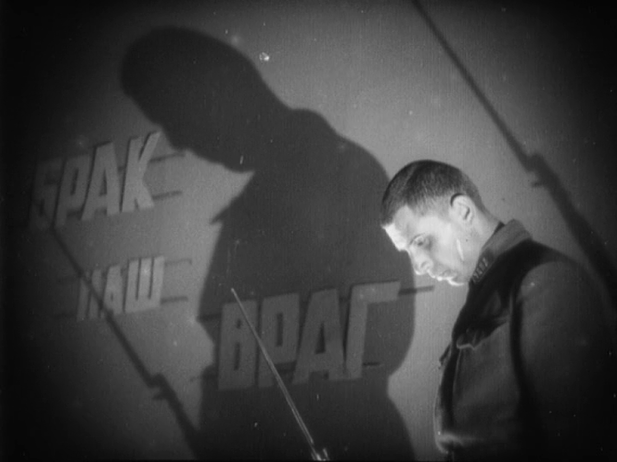 Being made in a time notorious for soviet propaganda films, Mikhail Kalatozov's Nail in the Boot is a late, nasty example. The story revolves around a heavily armored train heading through Russia that's attacked by an undefined enemy. The soldiers on the train are left stranded due to the damage, with one soldier being sent on a mission to deliver the news of the attack to his superior officers. Along the way, the soldier steps on a nail, which severely slows down his progress, enabling the enemy forces to capture the train. Due to his failures, the soldier is arrested and put on trial for his inability to effectively serve his country. Mikhail Kalatozov's Nail in Boot is a unique example of the soviet propaganda films in that it focuses its attention on every individual in society. The film argues that the success of the Soviet empire in war time isn't completely on the soldiers but the citizens of the country who manufacture and provide resources to the war effort. The story concludes with this disgraced soldier objecting to his crime, arguing that if his boot was made better, he would have never been injured. This is a film that argues that soldiers are responsible for their duties, just as workers of the Soviet Union are responsible for supplying them with the proper equipment, and only together will the country prosper against its enemies. Technically the film is impressive, with Kalatozov giving the film an incredibly dynamic quality by using powerful imagery and frantic editing. Even by today's standards, Kalatozov's Nail in Boot is an engaging and intense experience, even if its propaganda message is seriously outdated. |
AuthorLove of all things cinema brought me here. Archives
June 2023
|
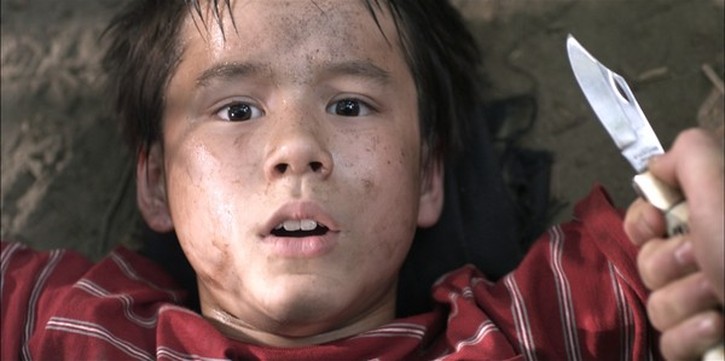
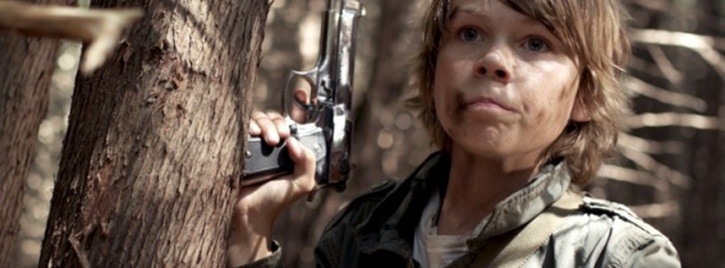
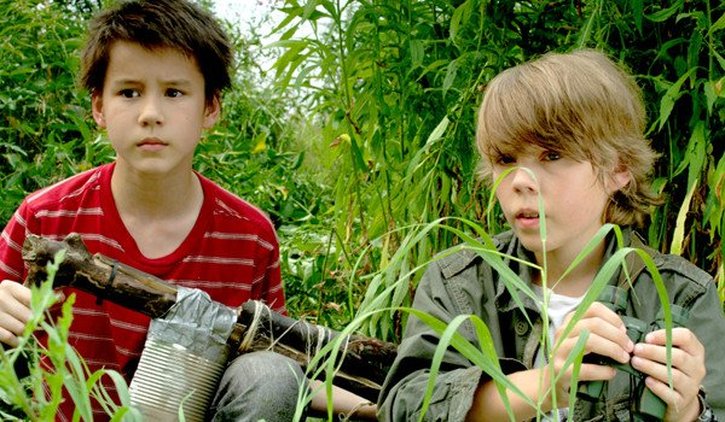
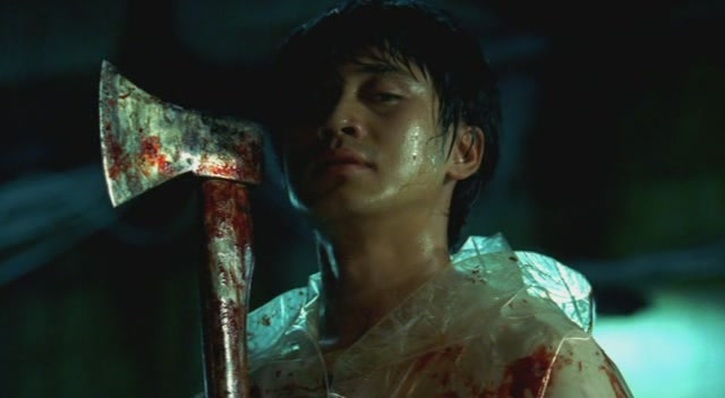

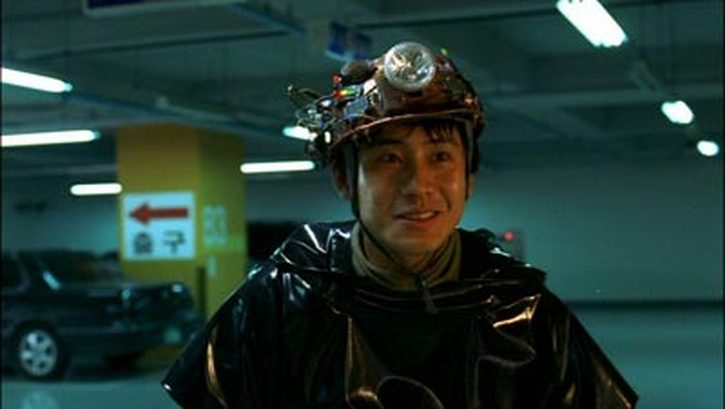
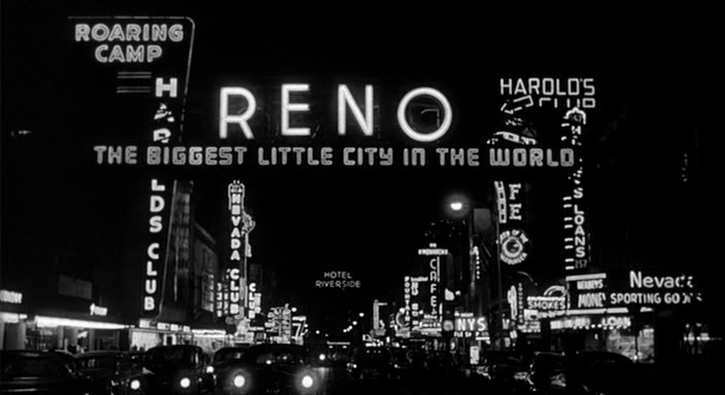
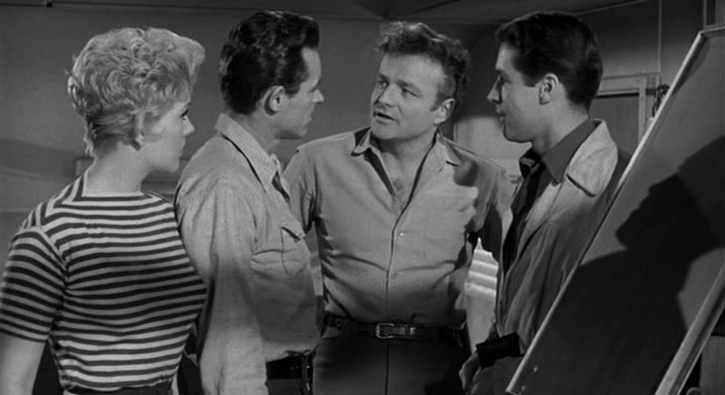
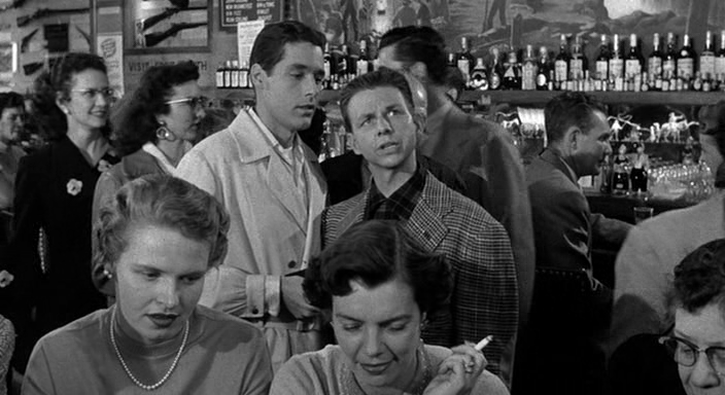


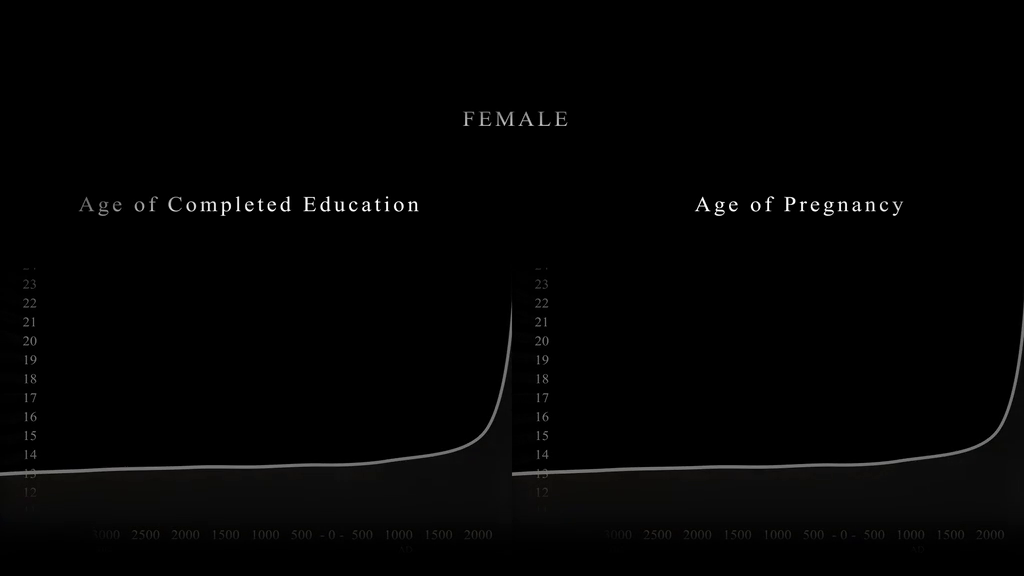

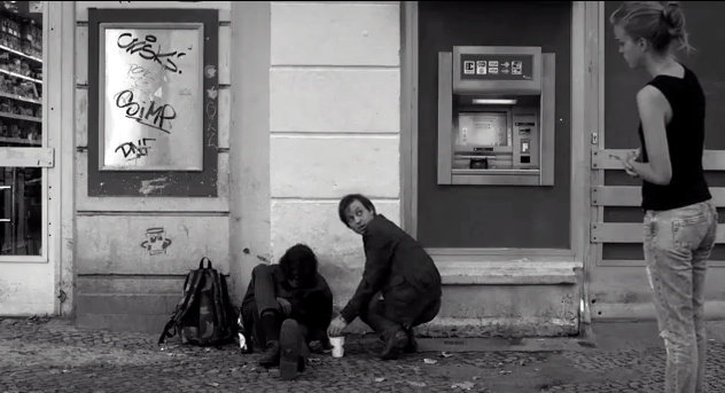

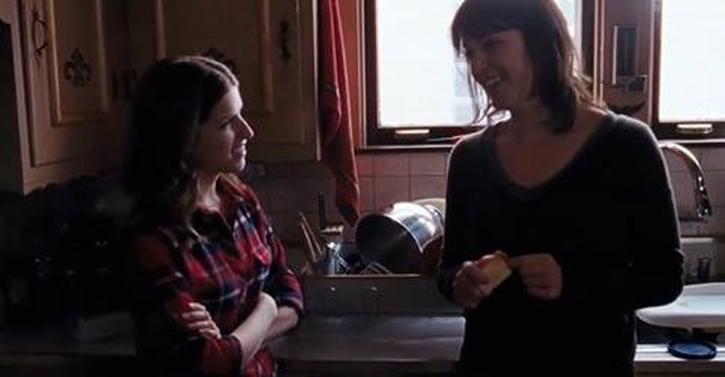

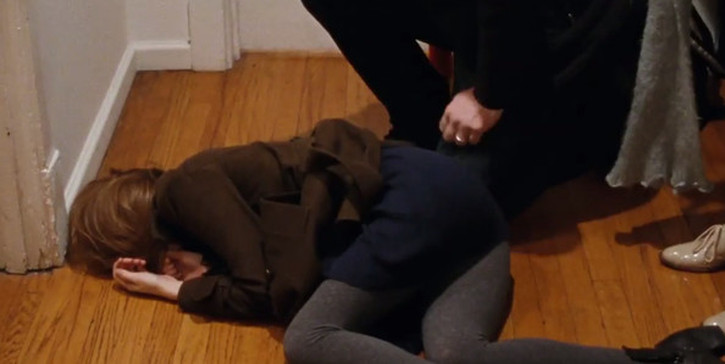
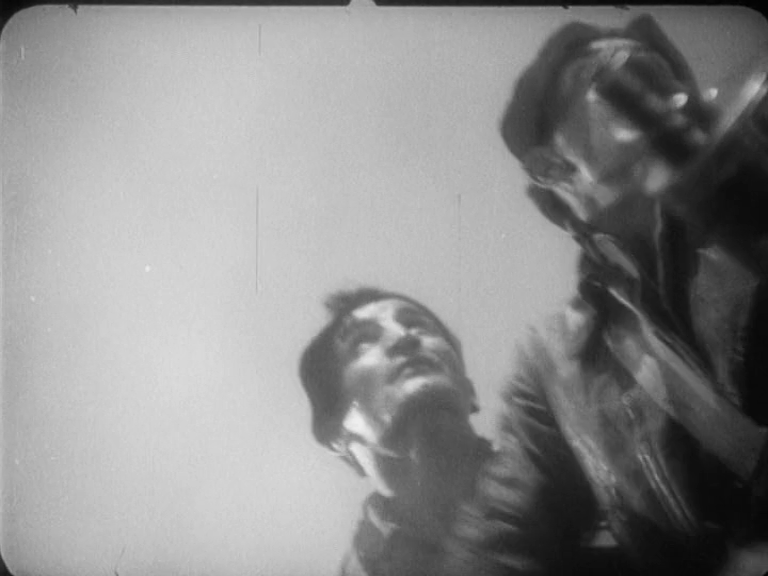
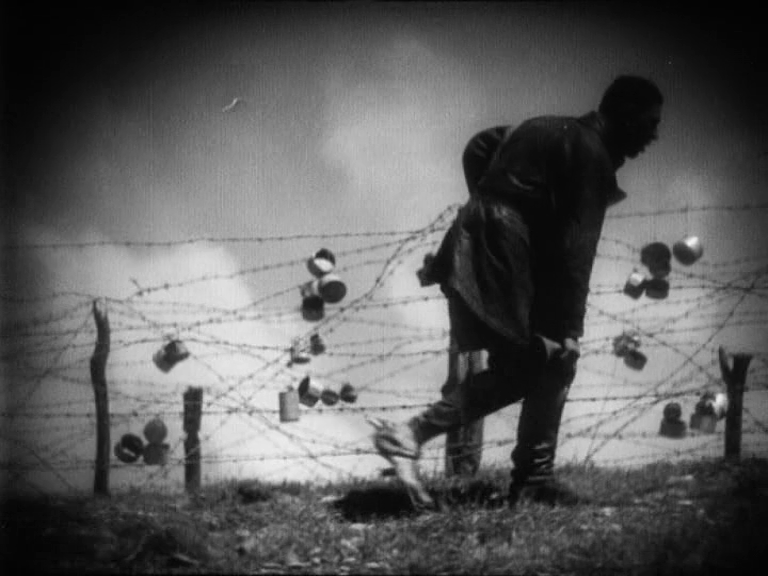
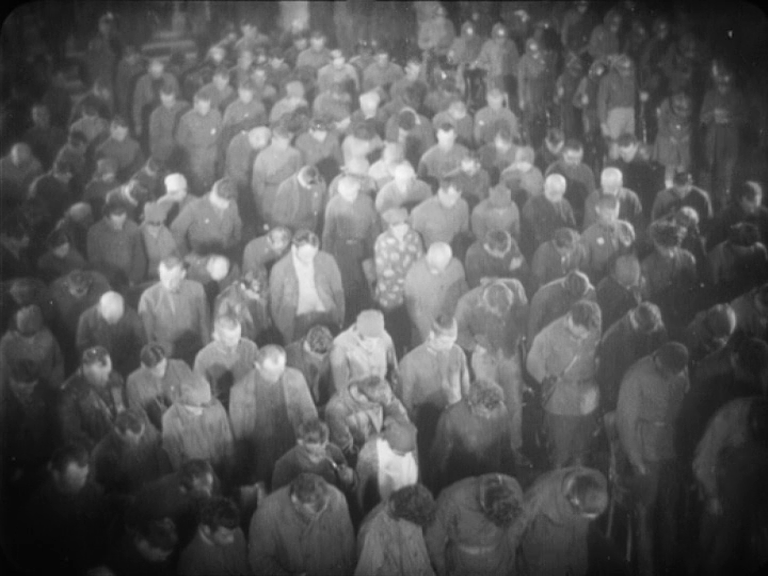
 RSS Feed
RSS Feed
